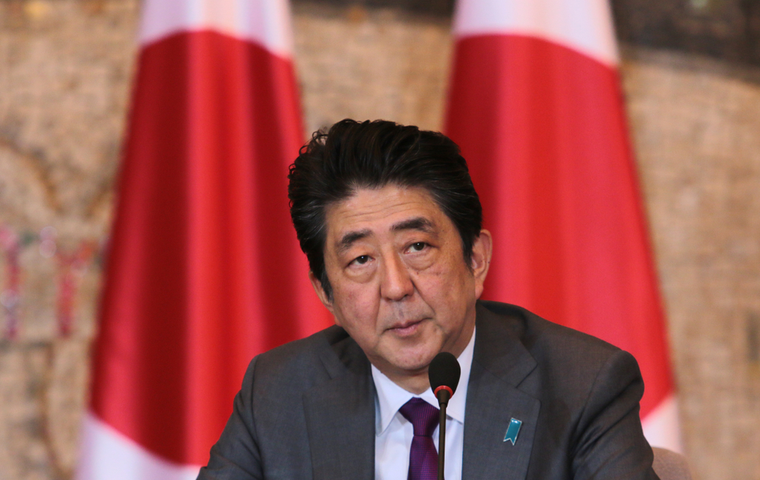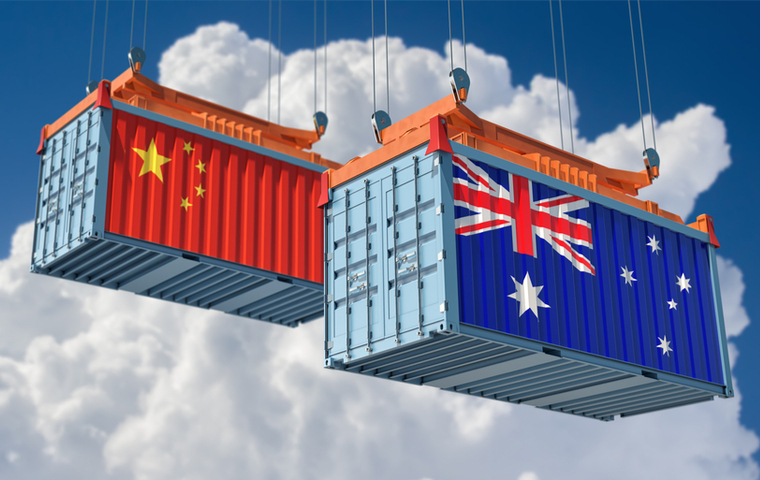Overturning the Misconception on Japan: Interview with Former BOJ Governor Shirakawa
Related Articles

Talks About His Book “Tumultuous Times”: Want to Correct the Wrong Lessons Learned from Japan
During his tenure, he was criticized for not being aggressive enough on monetary easing. When the current governor Haruhiko Kuroda took over in 2013, the BOJ targets 2% inflation within two years and pushed forward with the monetary “bazooka.” Shirakawa, who published the English version of his book in August 2021, continues to contemplate how a central bank should be.
(Interviewed by Motoyasu Hamajo, editorial desk, article by Ayumi Kurosaki, journalist)
Three years ago, when we interviewed Shirakawa following his publication of “Central Bank: 39 Years as a Central Banker” (in Japanese, from Toyo Keizai), he said, “I feel the discussions abroad on Japanese economy and monetary policy are inaccurate,” and was keen to publish the English translation of his book.
“Tumultuous Times,” published in August 2021, is the English version of “Central Bank.” However, it is a revised edition with extensive additions to help global readers with insufficient knowledge to understand the situation in Japan.

– Why did you publish the English version?
Shirakawa: Speaking from my experience, unless there’s change in the tone of global discussions, Japan regretfully can’t change the debate on its monetary policy by itself. Meanwhile, the world has misinterpreted Japan’s experience and drawn the wrong lessons—“We mustn’t fall into deflation like Japan, so we need persistent monetary easing.” I want to overturn the current state of this discussion.
– How did it lead to this publication?
Shirakawa: I thought I had to find a publisher by myself and asked my acquaintances to go in between. Thanks to the former U.S. Secretary of the Treasury, Timothy Geithner, he introduced me to the Yale University Press. I’ve known him since 1990 when he was an attaché at the Embassy of the United States in Tokyo. It’s difficult to get published in English-speaking countries without a network of personal contacts. For Japanese knowledge to get globalized, I feel there’s a hurdle.
Signs of Changes in Discussions

– In the original edition, “Central Bank,” you raised a question against the mainstream economics that is behind the current monetary policies. Has there been a change in the last three years?
Shirakawa: I do feel there’s some change in academic papers and policy official statements.
Former U.S. Secretary of the Treasury Lawrence Summers has stated, “The utter failure of the Bank of Japan’s extensive efforts to raise inflation suggests that what was previously treated as axiomatic is in fact false: central banks cannot always set inflation rates through monetary policy.”
In July 2021, the British Parliament’s House of Lords Economic Affairs Committee compiled a report titled “Quantitative easing: a dangerous addiction?” after hearing statements from central bankers and academics, in which I also contributed. It raises the question of whether a situation like this can be continued.
In its monetary policy strategy review released in July 2021, the European Central Bank (ECB) emphasized the stability of the financial system is the prerequisite of price stability. It also pointed out that demographic factors have contributed to lowering the inflation rate. When I recall the criticism I received as the BOJ governor, the tone of the discussion seems to be changing, though gradually.
Yet, if you ask whether central banks and the academia have changed fully, I can’t conclude that they have. For a time after the global financial crisis, there was some momentum to review the mainstream macroeconomics-based monetary policy management, but I have the impression that we have reverted to old school.
– At the British Parliament Testimony, you said, “I am a student of Milton Friedman.” What was the point of that comment?
Shirakawa: That does not mean that I agree to the individual claims of Friedman. I wanted to say that I hold respect for economics. I do not stand by arguments that deny the usefulness of economics.
During the period when the macroeconomics was going through rapid revisions, I studied at its epicenter, University of Chicago, and was captivated by how economics takes logical and empirical approach to economic events. However, over the years, I became increasingly uneasy with the pre-established worldview of mainstream economics.
I’m not saying the theory was wrong. No economic theory can perfectly explain the complex reality. Theories are established by disregarding the non-essential parts and highlighting the important issues. The economy and society are complex. Even when you have optimal rules, they cease to be optimal as people adapt themselves and behave accordingly. Yet, theories also explain the new situation, and they constantly get revised.
The Inflation Rate Puzzle
– Low inflationary trend has continued for a while around the world. But the inflation rate is rising, especially in the U.S., after going through the COVID pandemic. How do you see the future?
Shirakawa: The central bank would analyze the recent rise in inflation as “a temporary phenomenon, in which various goods and services are suffering from bottlenecks (restrictions) in supply caused by the pandemic.” And it is difficult to oppose this analysis with confidence.
After the bottlenecks are resolved, there can be conflicting scenarios.
Before the pandemic, in global discussions, the reason for failing to come out of low inflation despite the central bank’s aggressive easing was attributed to the loss of corporate pricing power because of intensified competition from globalization and IT revolution. Can we say that situation has basically changed? It’s hard to totally omit the theory of the return to the low-inflation.
However, we must also be aware of “regime change” possibilities. Looking back at the U.S. Volcker Shock in 1979, it took a long time, but with drastic monetary tightening, the inflation stopped. This regime change wasn’t expected. After that, the low inflation regime continued for a long time, but we can’t say for sure there won’t be another regime change.
For example, amid the growing public debt, there is an awareness of possibilities that the central bank will be obliged to continue monetary easing to avoid fiscal collapse.
If the recent rise in global commodity prices reflects responses to climate change, we can’t dismiss the chances of rising inflation as the result of a significant change in relative prices expected to continue over a long period.
What determines the inflation rate? At one time, the predominant answer was “quantity of money” and “central bank’s guidance towards expectations.” But the truth is we’re not sure how the regime will change.
Bigger Central Banks
– How should central banks respond to climate change?
Shirakawa: It’s a challenging theme. Indeed, the entire world needs to respond to climate change to achieve a sustainable economic society. However, I don’t agree to making it a mandate for the central bank.
The role of the central bank is to create a financial environment sustainable over mid- to long-term. In effect, it contributes to a sustainable economic growth by attaining price stability and financial system stability. This is why independence was granted to the central bank.
I believe we should be cautious in adding the mission of newly responding to climate change to such an organization, because it’s an issue that affects both resource allocation and income distribution. While it is important to respond to climate change, the government should decide on how the entire society will act, based on professional expertise, and financial market prices will reflect this. Ideally, the central bank should act neutrally toward that market.
– So, the central bank should not focus on climate change?
Shirakawa: I’m not saying the central bank should do nothing. For example, when the central bank provides credit, if it takes collateral by ignoring the climate change-related evaluation of the financial market, it would mean the central bank has made its own response to climate change, and it will end up receiving assets with high environmental burden.
The relationship between climate change and the central bank is now such a big issue, partly because the central bank’s balance sheet has swelled and the question of “how to manage assets equivalent to the amount of currency issued” has become tremendously large. Can we allow a situation where the central bank’s behavior generates bias and affects microeconomic resource allocation? We will face a substantive question: should such an organization be granted with independence?
In recent years, central banks appear to have an engaging attitude towards climate change. This seems to be influenced by the mentality of wanting public support and sympathy necessary for its independence. Yet, people have different opinions even on climate change. In an increasingly divided society, it is ever more important that the areas where an independent central bank should take the initiative in decision-making are distinguished from the areas where it shouldn’t.
Central banks should focus on maintaining a stable financial environment, an area where they have a comparative advantage. In terms of impact on social sustainability, the monetary policy’s influence on the financial system is closer to the central bank’s key role, and we should be more conscious of this point.
Masaaki Shirakawa
Born in 1949. Graduated Faculty of Economics, University of Tokyo and joined BOJ in 1972. Served as BOJ Executive Director (2002-2006), Kyoto University School of Government professor, then BOJ governor (April 2004-March 2013). Became Special Professor of International Politics, Economics and Communication at Aoyama Gakuin University in September 2013, and Distinguished Guest Professor since September 2018.




